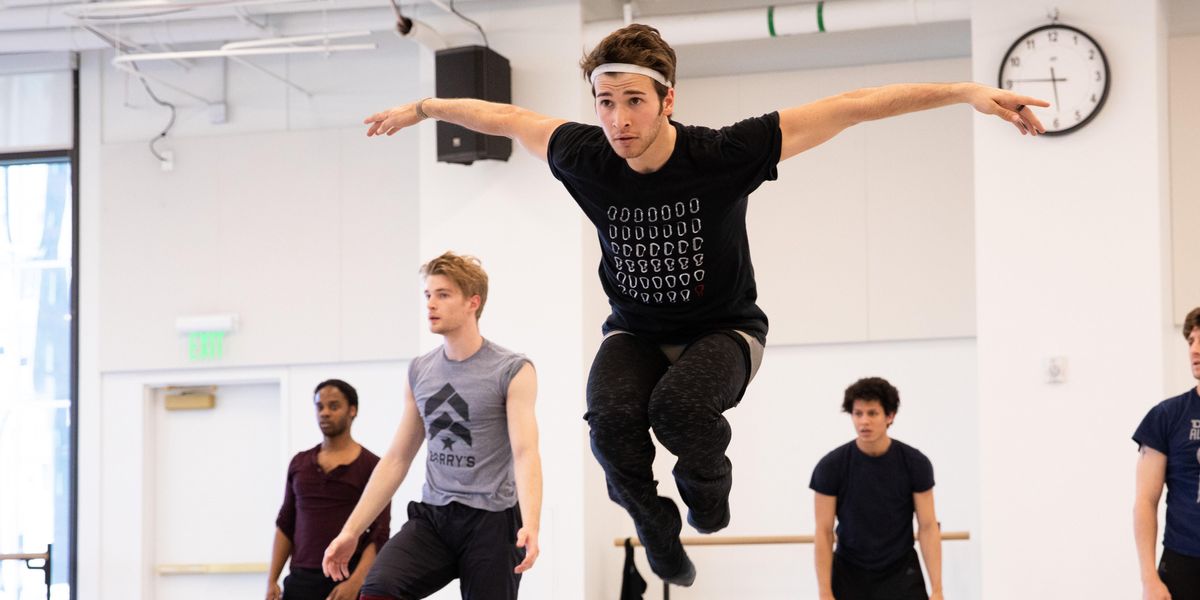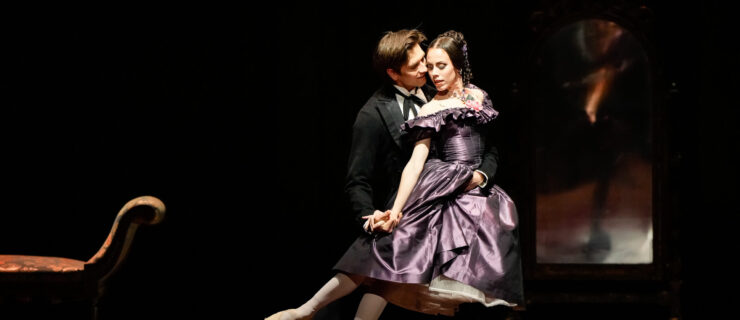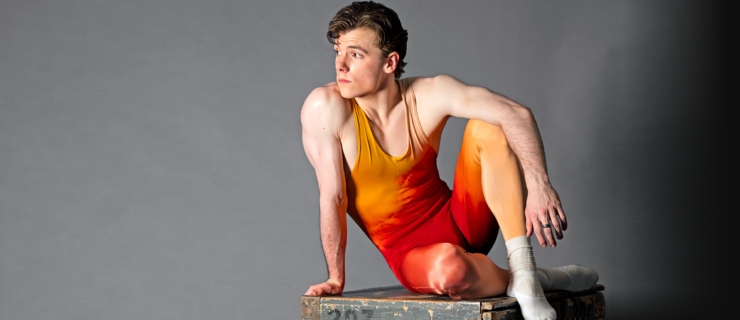Ballet West Dancer Joshua Shutkind Opens Up About Dealing With Bipolar Disorder
It was the kind of nightmare that haunts a dancer in their sleep. Joshua Shutkind, then a first-year corps member with Ballet West, stepped onto the stage in the coveted role of the Prince in The Nutcracker and completely forgot the steps. But Shutkind was not dreaming.
“Dancers are aware of their strengths and one of mine was my memory,” he says. “The company always relied on me to pick up choreography, and that kind of kept my confidence high.”
Shutkind doesn’t remember much about how he handled the moments that followed in the battle scene, his view confined by the foam Nutcracker head he was wearing, and his mind lost in the fog that had set in nearly six months prior. The fog had come with tumultuous emotional swings, but it would be another year before he would receive a formal diagnosis for bipolar disorder.
When Shutkind arrived in Salt Lake City in 2015 as a member of the second company, he was coming off of a major back injury that had taken the better part of a year to recover from. He was in a new city, away from his family in New York City. He was thrilled to be offered a corps contract starting in the fall of 2018, but that summer, strange emotions began to overtake him.
“I started to notice that I was higher energy and happier than I had ever been in my life,” he remembers. “Just unbelievably powerful and like nothing could defeat me.” That high lasted for weeks until it was gone, like flipping a switch. “In September, I remember waking up one day feeling empty.” The change was alarming, but Shutkind was afraid to say anything. “That lasted about a week, and then I started to feel the depression,” he says. “Nothing had necessarily happened, but I started to feel the darkness coming over me.”
The extremes of Shutkind’s manic and depressive episodes accelerated each time they happened. “I would wake up in the morning and feel this anger inside like there is no point in getting up, and that slowly evolved into there is no point in me being here,” he says. The depressive episodes would last three or four weeks each time, and made it hard to even make it to company class. He went to therapy, but it was easy enough to assign his feelings to life’s various trials.
Then the switch would flip again, and Shutkind would wake in the night with intense energy and feelings of “godly” confidence, he says. During these manic episodes, which tended to last about a week, he rarely slept or ate. “My hair was falling out; my skin was becoming unhealthy,” he says. “I could tell that I was not the way that I once was, and I was horrified to talk to anybody about it because I thought nobody is going to have answers.”
His care for his body suffered, and so did his dancing. Old and new injuries flared up endlessly. “My ability to make it through rehearsals was significantly diminished since I wasn’t fueling my body throughout the day,” he says. Feeling out of control of his moods created tremendous anxiety, both with close friends and artistic staff.
Shutkind went to the emergency room several times during manic episodes, desperate for answers. They would simply give him an IV, assuming he was on drugs. “Even some great doctors don’t get it right,” he says. Many physicians would explain the episodes away with the fact that it is normal to feel emotional, particularly at his age. However, according to the American Psychiatric Association, late teens and early 20s are also the time when people are most likely to experience their first mental illness.
An SSRI prescription for depression only made things worse. During contract negotiations for the 2019–20 season, Shutkind asked Ballet West artistic director Adam Sklute for a leave of absence, citing his back injury. Sklute agreed, and Shutkind took several months off. “I was so grateful to Adam for giving me that because he could have just said no. Some part of me thinks he knew I needed that time for my mental health.”
Toward the end of his leave, Shutkind watched the Amazon series “Modern Love.” In one episode, Anne Hathaway plays a bipolar woman with extreme emotional episodes. Shutkind watched the screen in amazement as the character ripped back and forth between unbridled joy and emptiness, just like he did. “I called my doctor the next day and said, I think I have bipolar disorder.” His doctor agreed and, thankfully, found a medication that worked on the first try.
“I have been able to rebuild my life and relationships,” he says. “I found an amazing therapist who I was seeing once a week, and now I just see her when I want to talk to her about something.” After returning to work at Ballet West, Shutkind says that his mental and physical health felt more solid than ever.
Yet he still has occasional episodes. Most recently one took him by surprise following the death of his grandmother. “With therapy, medication and loving relationships with people who know about it, I am able to pull myself out of it, and I live an almost completely normal life.”
As Shutkind has managed the shutdowns related to the pandemic, he has spent a lot of time thinking about others who may be where he was just a short time ago. “Especially in the ballet world, there is this idea perpetuated that we have it all together. We are performers, that is what we do,” he says. But he wishes dancers would see it differently. “Every dancer knows that feeling of going to bed and thinking about how they are going to dance through their injury the next day,” he says. “And if you had just dealt with the injury instead of pushing on, you could have avoided a stress fracture or something more serious. I like to think about that and reflect on what happened to me.”
After over a year of living in fear of what was happening to him and how those who love him would respond if they knew how bad it really was, Shutkind has found peace and acceptance. “This is just a part of me now just like everything else,” he says. “After you have been through something like that, you are not who you were anymore. But if you can embrace, truly, who you have become and accept it, you become something greater and you are able to live an authentic life.”





